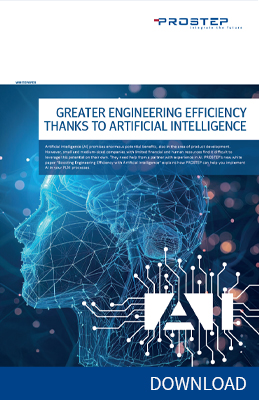 Unlike product development and production, where PDM/PLM and ERP systems have been established for many years and are nowadays often relatively well integrated, the end-to-end digitalization of planning and control activities has been treated rather poorly. Production planners work with a variety of different tools that are not integrated or only integrated in a rudimentary sense, and which do not provide end-to-end support for the MPM process. In many companies, they still derive the MBOM from the EBOM in a manual process. This takes a great deal of time, especially when changes are made, and limits their ability to respond to new customer requirements.
Unlike product development and production, where PDM/PLM and ERP systems have been established for many years and are nowadays often relatively well integrated, the end-to-end digitalization of planning and control activities has been treated rather poorly. Production planners work with a variety of different tools that are not integrated or only integrated in a rudimentary sense, and which do not provide end-to-end support for the MPM process. In many companies, they still derive the MBOM from the EBOM in a manual process. This takes a great deal of time, especially when changes are made, and limits their ability to respond to new customer requirements.
This is why users in the fields of PPS and MPM are increasingly calling for tools specific to their requirements that support all processes from end to end. In the new white paper, companies learn why this does not necessarily mean that they have to opt for a monolithic approach or for the use of PLM or ERP systems. Depending on their requirements, they can use a separate solution such as an MES system for PPS or MPM. The OpenPDM integration platform allows such a system to be integrated into the existing IT landscape to such an extent that BOMs and other manufacturing information can be exchanged easily and synchronized in the event of changes.
OpenPDM supports the transfer of information between PDM, MPP and ERP systems at different levels. At the lowest level, the software enables access to the connected systems via connectors that can read and write product-specific information in compliance with the PLM paradigm. At the second level, the software's mapping service makes it possible to map the data schemas between the applications involved. At the topmost level, OpenPDM supports integration using an intuitive process engine. On the one hand, it controls the exchange of data and, on the other, links cross-system processes such as change management.
Thanks to the integration platform, it is possible to provide production planning with up-to-date and consistent product information. The production planners can always access up-to-date information for their day-to-day work in their MPM system without having to laboriously obtain it by mail or in Excel spreadsheets, as was previously the case. Necessary changes are also recorded and processed with system support and synchronized between the participants without any loss of information.
You can download the new PROSTEP white paper on end-to-end digitalization between product development and production here.
